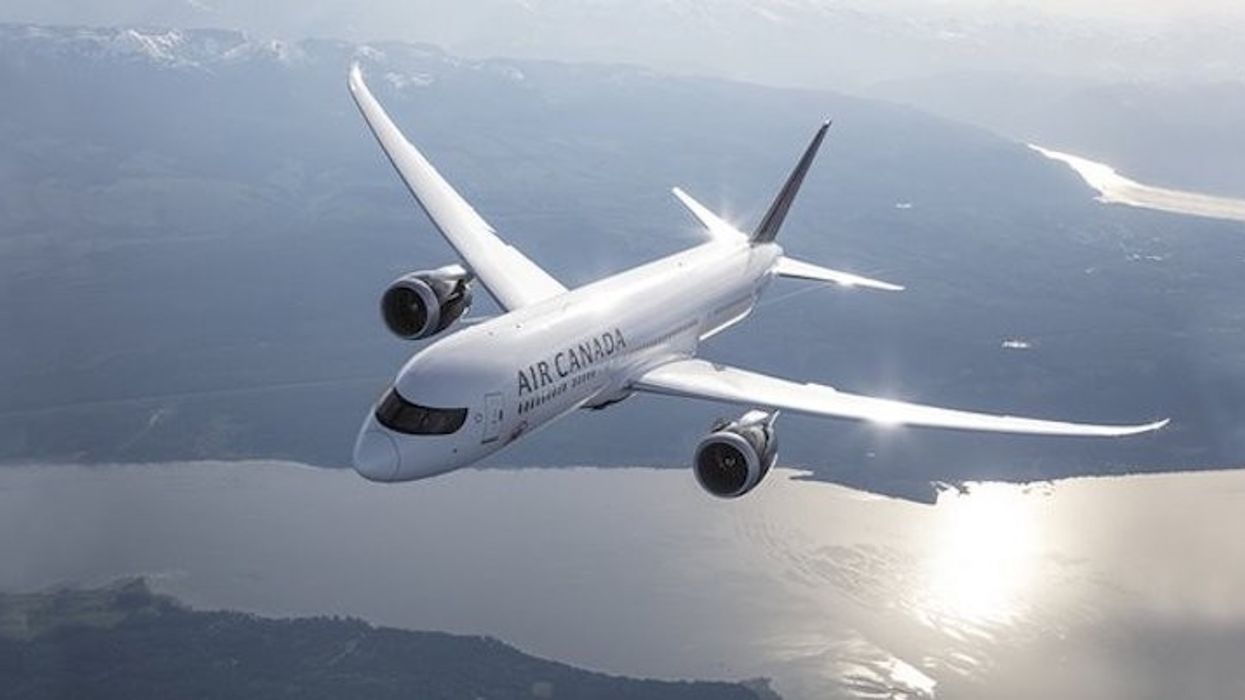As the coronavirus continues to spread at a concerning rate, things are starting to change—on a local and global scale. This includes travelling, both domestically and internationally, with travel restrictions becoming more serious and widespread over the past few days.
Sweeping travel bans have begun around the globe, blocking off travel to countries and even entire continents, keeping people inside their homes, with the hopes of slowing down the spread of the virus, which has already claimed the lives of over 5,000 people.
RELATED:
- Here’s What Pearson Airport is Doing to Protect Travellers from the Spread of Coronavirus
- What Metrolinx and the TTC Are Doing to Protect Customers from the Spread of Coronavirus
In response, major Canadian airlines are taking active steps to ensure Canadians are safe and protected against the virus.
Here's how major Canadian airlines are protecting travellers:
WestJet
The airline says it trains comprehensively for this type of scenario as part of its overall emergency response and currently has a COVID-19 direct response team in place as the situation develops.
From the beginning of the coronavirus, WestJet says it's been in contact with the Public Health Agency of Canada (PHAC), Transport Canada, and other agencies around the world, to ensure it's on top of its coronavirus response.
In addition to the standard, daily aircraft cleaning, WestJet says it's also implemented additional measures to increase the sanitization of its aircrafts.
"We already disinfect and sanitize our aircraft using industry-approved products and have also introduced hospital-grade Clorox Wipes and Spray to our cleaning processes," said the airline in a statement.
These new products are used to clean the galleys, lavatories, tray tables, seat armrests and headrests, seatbelt buckles, the power supply unit panel, overhead bin door latches, and lavatory door handles.
In the air, travellers are also protected by WestJet's state-of-the-art HEPA filters, which are similar to those used in hospitals, and achieve a viral and bacterial removal efficiency of greater than 99.99%. WestJet says fresh air is also blasted into the cabin every two to three minutes for further preventative measures.
Air Canada
In response to the virus, Air Canada says it continues to monitor the global impact of COVID-19 and is in constant communication with Canadian and international health authorities. Here's how the airline is protecting travellers:
At the airport: To promote a more hygienic airport experience, Air Canada has placed hand sanitizers in key areas such as check‑in counters, gates and lounges. The airline also has constant reminders about the importance of hand-washing.
Before a flight: If a customer, who appears unwell, attempts to check‑in or board an aircraft, Air Canada agents will make inquiries of the customer in regard to their health. This can include consultation with the airline's Medical Desk and/or a third‑party health provider. If the traveller is unfit to travel, they will not be permitted to board.
In the air: Air Canada aircraft are equipped with High-Efficiency Particulate Air (HEPA) filters which effectively capture 99.9% of particulate from recirculated air in the aircraft cabin, including microbial organisms such as bacteria and viruses.
After every flight: Since coronaviruses are easily eliminated by routine surface cleaning and sanitization, Air Canada says it uses cleaning products, including hospital‑grade disinfectants, which have a wide-spectrum microbial activity and are proven effective against human coronavirus.
Porter
Toronto's Porter Airline says all of its aircraft go through standardized grooming procedures that exceed the Public Health Agency of Canada (PHAC) guidelines.
"As of this month, we’ve taken additional precautionary measures and introduced the use of hospital-grade, broad-spectrum disinfectant to sanitize all areas throughout the aircraft," said the airline in a statement.
All of Porter's aircraft are also equipped with an industry-leading air circulation system containing a HEPA filter.
"Modern aircraft have cabin air systems that deliver approximately 50% outside air and 50% filtered, recirculated air. This means the supplied air is essentially sterile and the risk of contracting a virus on board a flight is probably lower than in many confined spaces," reads the airline's website.
PHAC continues to assess the public health risk associated with coronavirus and says the level is low for Canada. To date, there are no known cases where this virus has been transmitted from one person to another on an aircraft.
You can stay up to date on the state of the coronavirus in Canada on the government's official COVID-19 web page.





















